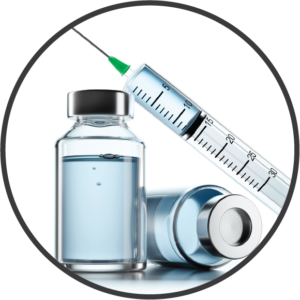- Research Services
- Capabilities
- About Us
- Resources
- Contact Us
 PK/PD
PK/PD Toxicology
Toxicology PK/PD and Toxicology
PK/PD and ToxicologyPharmacology and toxicology studies are indispensable in the drug development process. These studies provide mission critical data regarding the safety and efficacy of the compound of interest. The planning and execution of programs to investigate the pharmacokinetics, pharmacodynamics, and toxicity of potential drug candidates should be a baseline practice at the pre-clinical stage to help better inform downstream regulatory applications and clinical trial designs.
The BioModels technical team is trained with all routinely used routes of administration for in vivo studies including the following with alternative routes available upon request:
BioModels is fully equipped to perform PK/PD and non-GLP toxicology studies to support any drug development program with customizable experimental endpoints such as:
Pharmacokinetic (PK) and pharmacodynamic (PD) studies are essential tools for early drug research and development that enable the transit assessment of the molecule of interest throughout the body, as well as the monitoring of any biological responses from the model host or cells.
BioModels offers non-GLP services to perform large or small-scale PK and PD studies in an effective and time-efficient manner with customizable experimental endpoints including, but not limited to:
Preclinical toxicology and safety evaluations of any new drug candidate are paramount for a successful transition to testing in a clinical setting. BioModels offers customizable, non-GLP, short-, mid-, and long-term toxicology/tolerability studies that can be customized to meet the goals and requirements of individual testing programs with flexible endpoint assessments.
These assessments include:
Study Models

Pharmacokinetic (PK) studies help to establish how the target host will interact with administered substances. These studies typically examine the absorption, distribution, metabolism, and excretion of the substance of interest and are useful in determining appropriate formulation and dosing schedules for novel compounds. BioModels has flexibility for designing and performing customized in vitro and in vivo PK studies, and time point collections can be customized based on your needs and timelines. After collection, samples can be further processed at BioModels for downstream analysis or sent directly to the client.

Close

Pharmacodynamic (PD) studies are important for characterizing the effects exerted by novel therapeutic candidates on the host’s biological systems. These studies can help provide confirmation that the drug candidate is modulating target receptors and cellular pathways as intended and can provide insight into which biomarkers should be used to monitor efficacy in a clinical setting. Identification of biomarkers that will accurately indicate therapeutic efficacy is a primary factor in determining the success of a clinical trial. BioModels has the capabilities and expertise to execute PD studies that are custom designed to validate potentially predictive biomarkers and assess target engagement. Timed sample collections can be customized based on client needs and timelines, and samples can be further processed at BioModels for downstream analysis or sent directly to the client.

Close
Study Models

Characterizing acute toxicity levels of a candidate treatment compound in a pre-clinical setting is a necessary precursor to establishing a safe target range for dosing concentrations. BioModels has developed a non-GLP toxicology screen that will provide in vivo measurements of the lethal dose 50% (LD50) and the maximum tolerated dose (MTD) with a series of single or limited dosing followed by close observation/assessments over a 24-hour period. Doses are then increased or decreased to determine the LD50 and MTD based on initial toxicity results.

Close

Tolerability, or chronic toxicology studies, are another important step in establishing a complete safety profile for novel therapeutics. These studies can help to assess the impact of continued host exposure to compounds of interest at various doses once acute toxicity levels have been determined. Tolerability studies can provide data that will be useful in establishing long-term dosing regimens and in supporting efficacy profiles for these extended treatment timelines. BioModels’ base, customizable framework for a tolerability study includes dosing for 14 days followed by close observation and serum chemistry panel analysis to detect signs of organ toxicity.

Close



